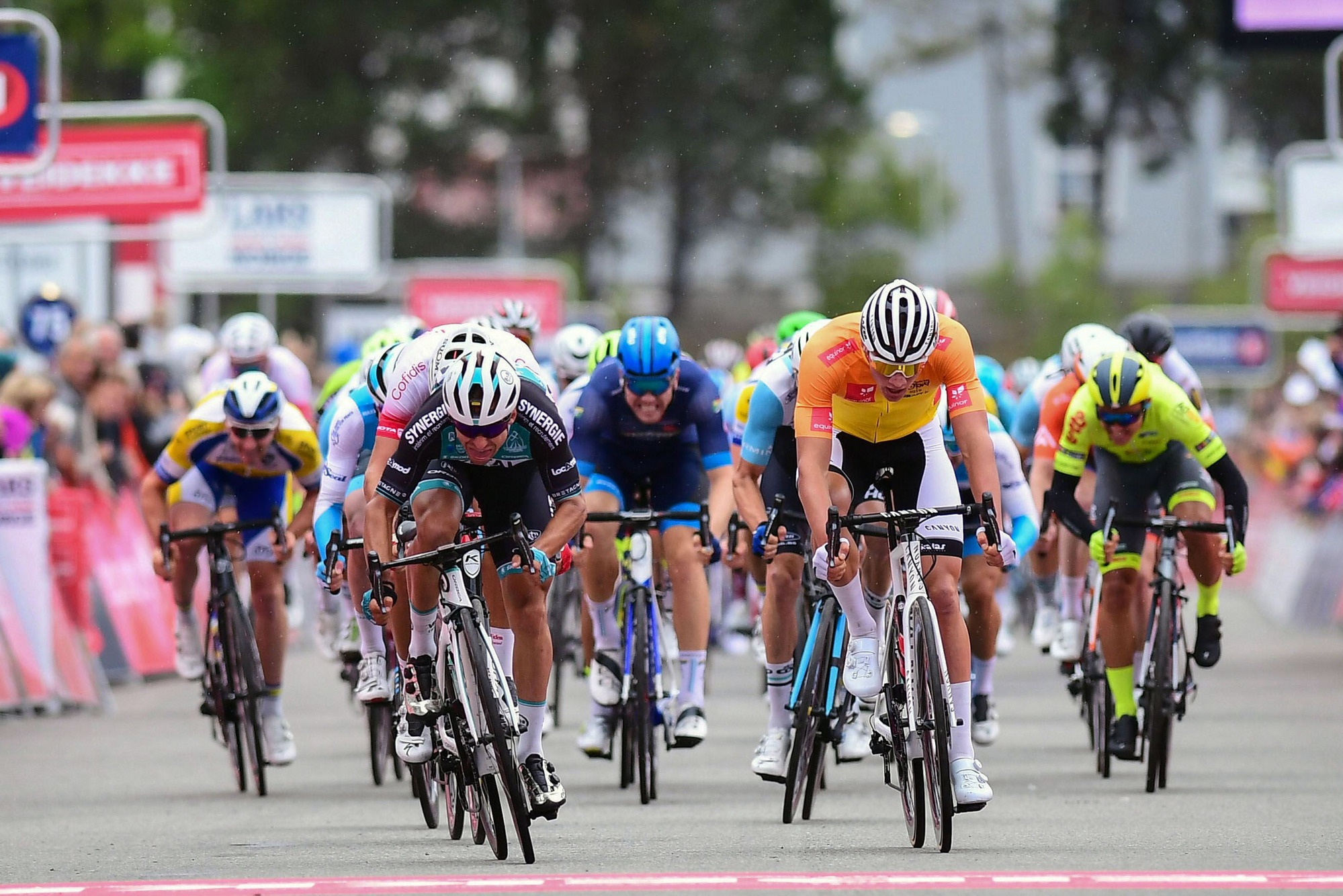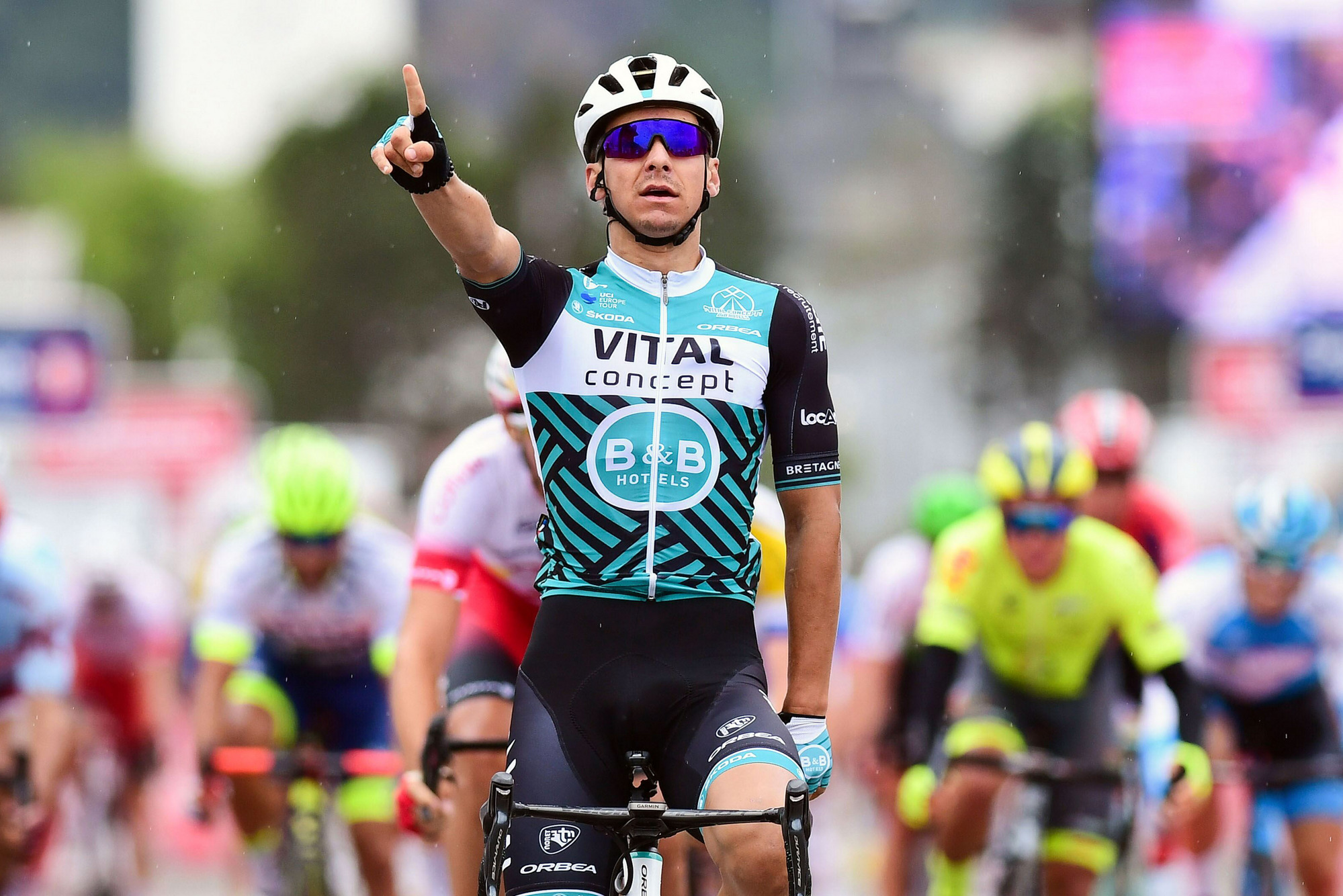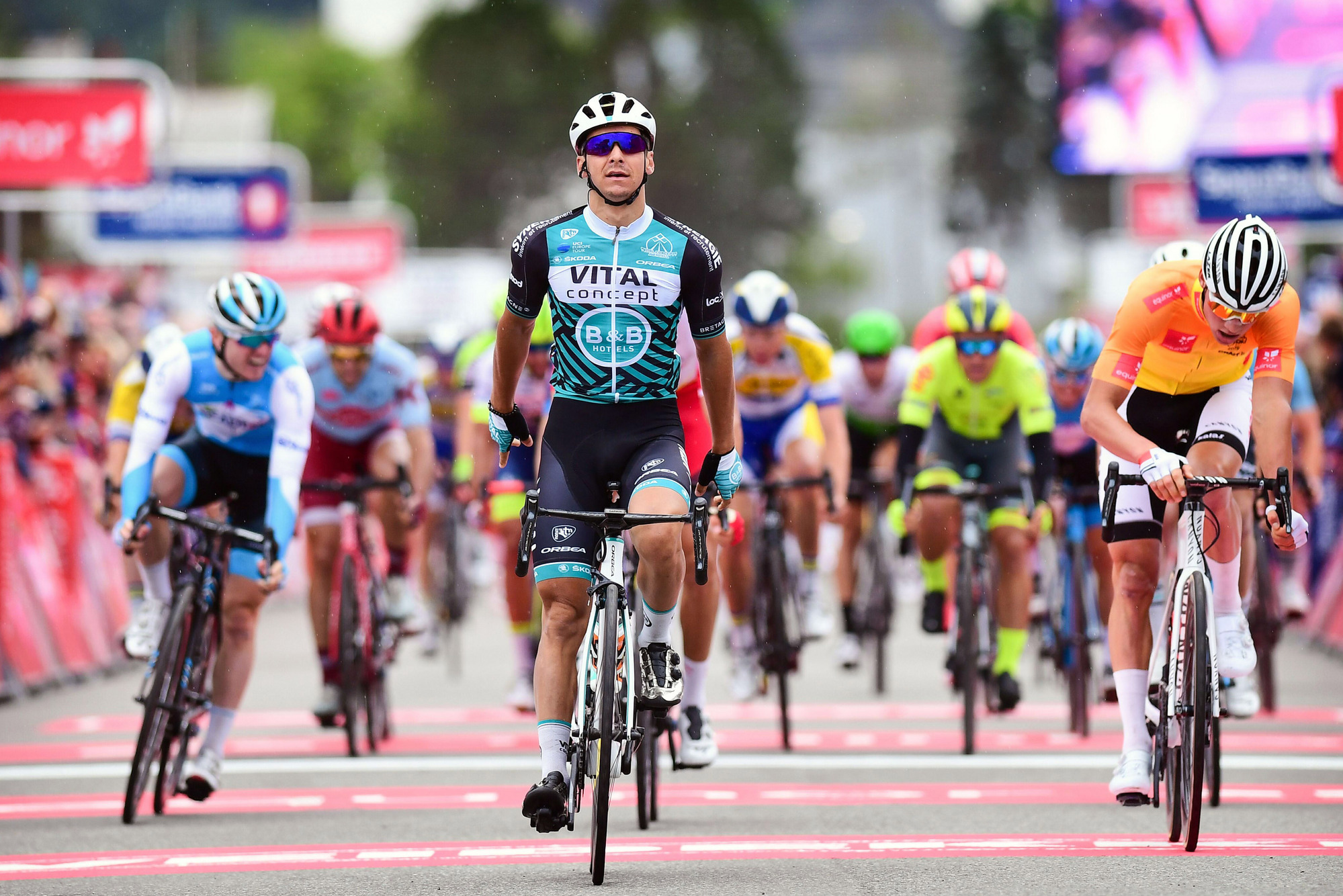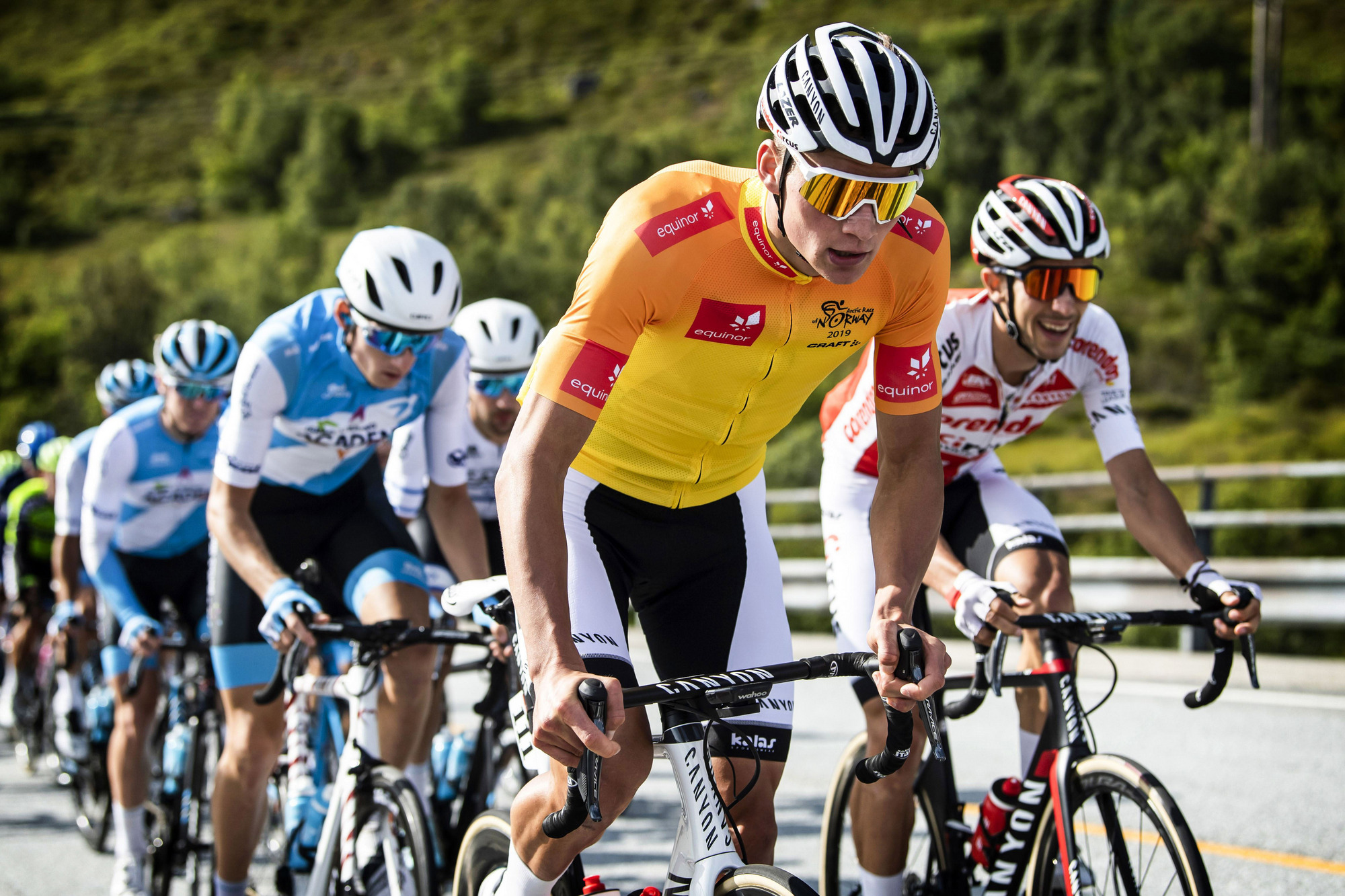Mathieu van der Poel handed rare defeat by Coquard at Arctic Race of Norway
Overall leader 'curious' to see how he fares on stage 3 summit finish




He is human, after all. On the second stage of the Arctic Race of Norway, Mathieu van der Poel did not win, which feels like something of a rarity given his extraordinary hit rate this year
The 24-year-old Dutchman, who has won more than 20 races across three disciplines so far in 2019, placed second behind Bryan Coquard in the bunch sprint in Svolvaer.
It was still an exceptional performance. The previous day, when he won the opening stage on his return from a four-month absence from road racing, he explained that his sensational sprint finish owed a lot to the nature of the stage, which had been raced flat out from the gun, with a 33-rider split going from 100km to the line.
When it came to a traditional bunch sprint, he insisted, it would be a different story. As it turned out, he was half right. He may not have won, but he still pushed Coquard and got the better of an established sprinter in Christophe Laporte.
"I know that, when it comes to a flat sprint after an easy stage, I'm not the fastest in the bunch, so I think I did quite a good sprint," Van der Poel told reporters in Svolvaer.
"Of course, I would rather win but I know I'm not the fastest guy on a stage like this, so I'm happy with second. It wasn't very close – I was still behind Coquard. Maybe if I could have started my sprint in his wheel I could have come closer, but I'm quite OK with this result."
Besides, Van der Poel revealed he was not feeling 100 per cent. Ahead of the race, he had warned he'd need time to re-adjust to road racing after a summer of mountain biking, and while that notion was made a mockery of on Thursday, it seemed the efforts of that gruelling opening stage caught up with him.
The latest race content, interviews, features, reviews and expert buying guides, direct to your inbox!
"I didn't feel good after yesterday. The legs hurt a little bit," Van der Poel said.
"I expected it because of yesterday's race. It's hard to start again with a stage like that. I had tired legs, but I don't think I was the only guy feeling it. Luckily it was a calmer day and that was good for me."
Attention now turns to the 'queen stage' of the Arctic Race of Norway on Saturday, with a summit finish on Storheia that will be pivotal from a general classification perspective. The final climb measures just 3.5km but the gradients average a searing 11.8 per cent.
"I think it's better for me than a long climb, for sure, but it depends on how the climbers attack it.
"Normally it should be too hard for me. Maybe if I have a super good day, I can follow, but I don't know. I'm curious to see how far I can go tomorrow."
Patrick is a freelance sports writer and editor. He’s an NCTJ-accredited journalist with a bachelor’s degree in modern languages (French and Spanish). Patrick worked full-time at Cyclingnews for eight years between 2015 and 2023, latterly as Deputy Editor.
